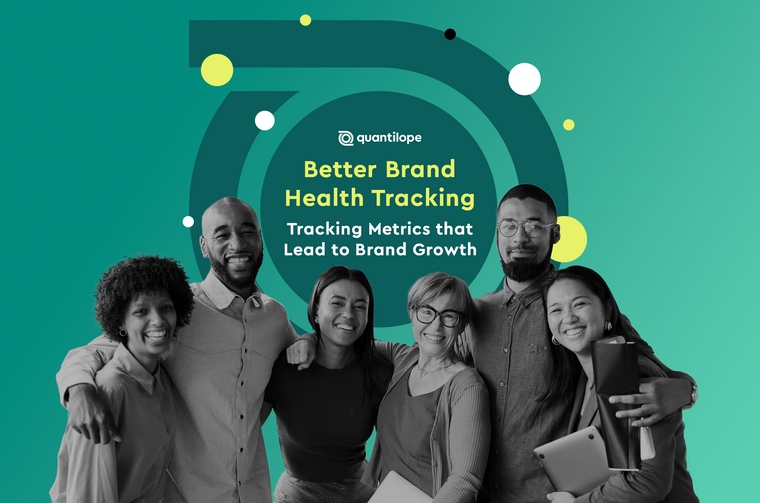The evolution from social listening to digital intelligence
The realm of social listening and using it to extract digital intelligence to guide decisions and craft strategy.

Article series
Insight250
- The importance of business sense in research
- The role of humour in effective leadership
- The importance of ethics
- The importance of disruption in innovation and leadership
- The importance of Disruption in Innovation and Leadership Part 2
- The importance of Diversity & Inclusion
- The impact of colour
- Communicating insight with impact
- Insights on leadership, culture and polling
- The evolution of electric vehicles
- 2022 Top tips (part 1)
- 2022 Top tips (part 2)
- Maximising the potential of data
- The importance of flexible working
- Winners
- The importance of advanced analytics
- Judges for the 2022 Insight250 Awards announced
- The evolution from social listening to digital intelligence
- The Judges' Perspective
- The judge's perspective - part 2
- Insight Climate Collective
- Insights technology
- Understanding employee ownership
- Global insight perspectives
- Top Tips from our Leaders and Innovators
- The Evolution of Insights in the Food & Beverage Market
- The Evolution of Insights in CPG
- Neural Mechanisms Behind Consumer Decision-Making
- Celebrating and Elevating the Insights Industry
- The State of the Insights Industry
- Opportunities, challenges and threats that AI presents
- 2024 Insight250 Winners Announcement
- Connecting Brands and Consumers Through Insights
- The Importance of Human Insight and Attention
- The Elevating Role of Insights with Technology Innovation
- Haleon’s Insight Expert on Consumer Healthcare
- Insight from the Insight250: How AI is Impacting Qualitative Research
- How AI Tech is Doing the ‘Heavy Lifting’ for Insights
- Reviewing the top tips for 2025
- Google's Sarah Ashley on AI and revolutionising insights - Insights from the Insight250
- Beyond BI: The Future of Decision Intelligence for Insight Professionals
- The Advancement & Impact of Insights - An Insight250 Winners Series perspective with David Smith
- International Jury for the 2025 Insight250 Awards Announced
- Newly elected President, Anne-Sophie, on Revolutionizing the Impact of Insights
- Haleon's Litthya Baez on Enhancing Healthcare with Insights - Insight250 Winners Series
- Understanding the Insights of Consumer Decisions
- Moving Beyond Dashboards to Deliver Decisions with AI
- How AI is Transforming Insights
- How AI is Transforming Insights
- Five Years of Insight250: Elevating the Insight Industry
The Insight250 spotlights and celebrates 250 of the world’s premier leaders and innovators in market research, consumer insights and data-driven marketing. The inaugural list was revealed this April and created renewed excitement across the industry whilst strengthening the connectivity of the market research community.
With so many exceptional professionals named to the Insight250 it seems fitting to tap into their expertise and unique perspectives across an array of topics. This weekly series does just that, inquiring about the expert perspectives of many of these individuals in a series of short topical features.
This edition features a pioneer in social listening who has seen it evolve dramatically over time. Rob Key is the founder and chief executive officer of Converseon and has tremendous experience and expertise in the realm of social listening and using it to extract digital intelligence to guide decisions and craft strategy. I sat down with Rob to review how social listening has evolved and where he expects it to go in the future.
What's the state of social listening today?
“We’ve been leaders in this space since 2010 (when we first were named Forrester Leader: Enterprise Social Listening) so we’ve seen quite a bit of evolution and some stagnation. On one hand, in many cases, you have very pervasive adoption of social listening platforms across the industry, but they perform relatively basic functions and tend to be siloed from core advanced analytics and insight functions.
“Other organisations are beginning to fully adopt social listening as powerful “data” that is not just descriptive and reactive – but indeed predictive and prescriptive - with some key enhancements. As a result, it is becoming accepted as core input into true “decision intelligence” for firms trying to get to the first in a world where “real time” is sometimes not even fast enough.”
Rob Key
What is separating the basic users from the advanced?
“The advanced companies are becoming “listening organisations” by building out from basic platforms and applying more rigorous custom natural language processing (NLP) and combining it with other first party data (such as sales) to understand what is truly driving business performance, how consumer needs are changing fast, and how to act on it. Increasingly other unstructured VoC data, such as reviews and survey verbatims, are also being integrated so instead of social listening data, we tend to refer to it as "conversation data." Powering all of this, outside of the data itself, are a range of analytical approaches and technologies including EDWs, robust APIs, and new auto NLP technologies that allow even non-technical people to build machine learning powered NLP classifiers (as well as access pre-trained ones by industry), advanced modeling and business simulation tools. In short, it is maturing rapidly away from the pure platform approach.”
Rob Key
Can you give me some specific examples of social listening transforming into “decision intelligence?”
“We have many examples of this. For one large CPG we were able to identify new tastes and trends in which they then effectively translated into a successful new flavored product. Our Social Brand Reputation offering has shown that it can in many cases predict shareholder value and a clear break down which attributes are the key drivers. We just did this successfully for a large global technology brand. It also identified new important category attributes that were being missed from their traditional tracker. For a global food company, we were able to predict product sales six months out for a set of vegan products.
“This is just scratching the surface. We have consistently been able to demonstrate that key attributes like “trust” as measured through this data set have strong predictive powers.
“We can be so effective in part because we can time travel extensively with this data – going back five or more years easily. The better we understand the past, the greater we can predict the future.”
Rob Key
What are primary use cases today?
“The decision intelligence approach to social listening is touching many parts of the organisation. Today primary use cases for us include reputation intelligence – as brands are challenged with navigating through polarised, challenging environment - and brand tracking where this data can either replace or augment traditional approaches. The ability to connect reputation measures to tangible business value has been a challenge for years and this approach helps solve that. Other areas include customer experience where conversation data really fills gaps missed by some traditional approaches like NPS; product innovation, customer journey analysis and, increasingly social responsibility, where those in charge of brand purpose and ESG efforts find this data useful.”
Rob Key
NLP is one of the areas where AI is most mature. What should users of these technologies look out for?
“Language is complicated. Success really requires moving beyond a one size fits all text analysis approach to embrace an applied AI approach that is focused on practical problem solving and aligns models with critically important “frameworks.” For example, if you set loose three individuals without guidance to annotate records that they consider expressions of “trust,” you are going to get three drastically different results. Trust may mean different things to different people, and without definitive definitions and frameworks, each individual will filter their annotations based on their own personal experiences and biases. Even for a bit more basic “sentiment analysis,” we have found that individuals often only agree with each other about 60-80% of the time. This also starts to speak to why there are so many challenges associated with issues like hate speech and disinformation - there are no real practical standard definitions.
“Applied AI approaches start with a clear understanding of the task at hand, develop essential definitions and coding guidelines, and apply a “wisdom of the crowds” approach so that multiple labelers are looking at and reviewing the same content with appropriate intercoder adjudication for when there is wide divergence. It is equally important that these “crowds” are not general public per se, but instead apply subject matter expertise to the process. Throughout this process, it’s critical that humans remain in the loop via a semi supervised approach to watch for unintended bias. As a result, we are now able to begin classifying data with great sophistication and nuance that go far beyond “sentiment” into critical areas like “trust,” “advocacy,” “detraction,” and more.”
Rob Key
Where does social listening go from here?
“I believe the “social” description will become of secondary importance to what we see our clients demanding - real time, essential intelligence to help them make rapid and informed decisions to navigate through a complex world brimming with a polarised society and rapidly changing consumer needs – or what we call decision intelligence. We must combine opinion and behaviour data to not just understand what they say, but what they do. This requires data they can count on to be reliable, accurate, predictive, prescriptive, and most importantly useful - all which can indeed be properly classified and modeled. But this also requires tying social data to other first party sales and other data.
”As such, I see “social intelligence” fragmenting from a one size fits all “listening platform” approach, that still largely dominates the market, to more use case specific solutions that also brings in more sophisticated, predictive analytics capabilities in areas like reputation, social responsibility, customer experience, innovation, and brand tracking/relevance. These solutions are “powered by” social but have many other additional capabilities and features so that “social” will not often be a primary descriptor.
Rob Key
Hot Topic: Is sustainability good for business?
“We have data to help weigh into the debates around shareholder capitalism and whether/how it is good for business. It’s been a charged debate since the Business Roundtable announced its “Purpose of a Corporation” statement in 2019.
“As part of our reputation offering, we have been able to precisely measure stakeholder perception of organisation ESG efforts with some rigor and detail. This required us to combine hundreds of prebuilt classifiers by industry for topics ranging from diversity & inclusion to carbon offsetting. We then can process that data retroactively over five years while analysing it against company performance across several measures. We can then overlay those perceptions across voices ranging from employees, to community, to investors. The short answer is in some industries we are seeing it as an important driver and predictor of business success, while in some others we are not yet seeing it as much. We will be publishing analysis on this soon from our work here.”
Rob Key
TOP TIP
“If you're looking to forge a career in quantitative analysis, unstructured conversation data still represents a compelling and largely "green field" opportunity. With unstructured data growing at an exponential pace, there is a palpable need to better mine this data for critical insight. The ability to transform this messy, wild data into effective business intelligence through applied AI, data science and some savvy subject matter expertise is in high demand for a world where speed to insight can't come fast enough.”
Rob Key
Thanks Rob. Fascinating insights into how this area is evolving. Remember everyone, the deadline for nominations for the Insight250 Winners for 2022 is the end of the month – go to www.insight250.com to make your nominations now. Good luck everyone.
 Rob Key is the Founder and Chief Executive Officer of Converseon, a consumer intelligence technology and consulting firm focused on processing and analysing unstructured human generated language data. He also founded Revealed Context, a machine learning technology that analyses social and VOC data. Previously he was Senior Vice President and Head of Innovation at Y&R (Cohn & Wolfe).
Rob Key is the Founder and Chief Executive Officer of Converseon, a consumer intelligence technology and consulting firm focused on processing and analysing unstructured human generated language data. He also founded Revealed Context, a machine learning technology that analyses social and VOC data. Previously he was Senior Vice President and Head of Innovation at Y&R (Cohn & Wolfe).
Crispin Beale
Chairman at QuMind, CEO at Insight250, Senior Strategic Advisor at mTab, CEO at IDXCrispin Beale is a marketing, data and customer experience expert. Crispin spent over a decade on the Executive Management Board of Chime Communications as Group CEO of leading brands such as Opinion Leader, Brand Democracy, Facts International and Watermelon. Prior to this Crispin held senior marketing and insight roles at BT, Royal Mail Group and Dixons. Crispin originally qualified as a chartered accountant and moved into management consultancy with Coopers & Lybrand (PwC). Crispin has been a Board Director (and Chairman) of the MRS for nearly 20 years and UK ESOMAR Representative for c15 years. As well as being CEO of Insight250, Crispin is currently Worldwide CEO of Digital Communications Solution Agency, IDX. Crispin is also the Senior Strategic Advisor at mTab and the Chairman of QuMind and spent 4 years as Group President of Behaviorally where he was responsibile for the client & commercial teams globally. Crispin is a passionate advocate for blending human intelligence and technology to deliver innovation and leadership across organisations.
Article series
Insight250
- The importance of business sense in research
- The role of humour in effective leadership
- The importance of ethics
- The importance of disruption in innovation and leadership
- The importance of Disruption in Innovation and Leadership Part 2
- The importance of Diversity & Inclusion
- The impact of colour
- Communicating insight with impact
- Insights on leadership, culture and polling
- The evolution of electric vehicles
- 2022 Top tips (part 1)
- 2022 Top tips (part 2)
- Maximising the potential of data
- The importance of flexible working
- Winners
- The importance of advanced analytics
- Judges for the 2022 Insight250 Awards announced
- The evolution from social listening to digital intelligence
- The Judges' Perspective
- The judge's perspective - part 2
- Insight Climate Collective
- Insights technology
- Understanding employee ownership
- Global insight perspectives
- Top Tips from our Leaders and Innovators
- The Evolution of Insights in the Food & Beverage Market
- The Evolution of Insights in CPG
- Neural Mechanisms Behind Consumer Decision-Making
- Celebrating and Elevating the Insights Industry
- The State of the Insights Industry
- Opportunities, challenges and threats that AI presents
- 2024 Insight250 Winners Announcement
- Connecting Brands and Consumers Through Insights
- The Importance of Human Insight and Attention
- The Elevating Role of Insights with Technology Innovation
- Haleon’s Insight Expert on Consumer Healthcare
- Insight from the Insight250: How AI is Impacting Qualitative Research
- How AI Tech is Doing the ‘Heavy Lifting’ for Insights
- Reviewing the top tips for 2025
- Google's Sarah Ashley on AI and revolutionising insights - Insights from the Insight250
- Beyond BI: The Future of Decision Intelligence for Insight Professionals
- The Advancement & Impact of Insights - An Insight250 Winners Series perspective with David Smith
- International Jury for the 2025 Insight250 Awards Announced
- Newly elected President, Anne-Sophie, on Revolutionizing the Impact of Insights
- Haleon's Litthya Baez on Enhancing Healthcare with Insights - Insight250 Winners Series
- Understanding the Insights of Consumer Decisions
- Moving Beyond Dashboards to Deliver Decisions with AI
- How AI is Transforming Insights
- How AI is Transforming Insights
- Five Years of Insight250: Elevating the Insight Industry


